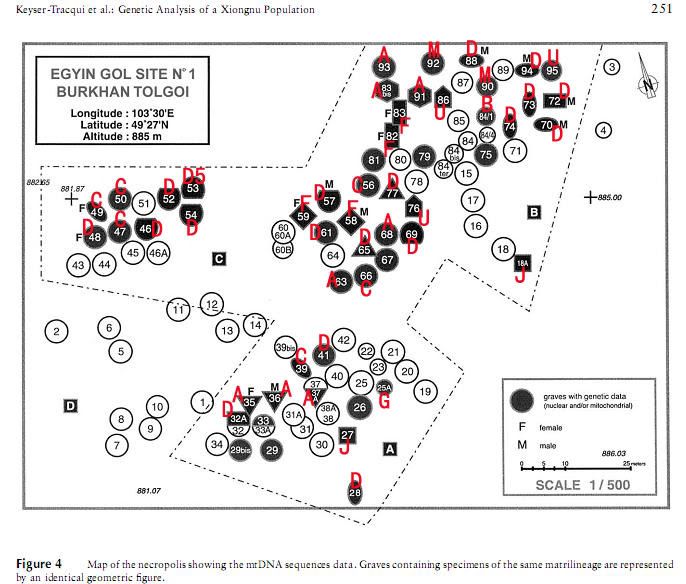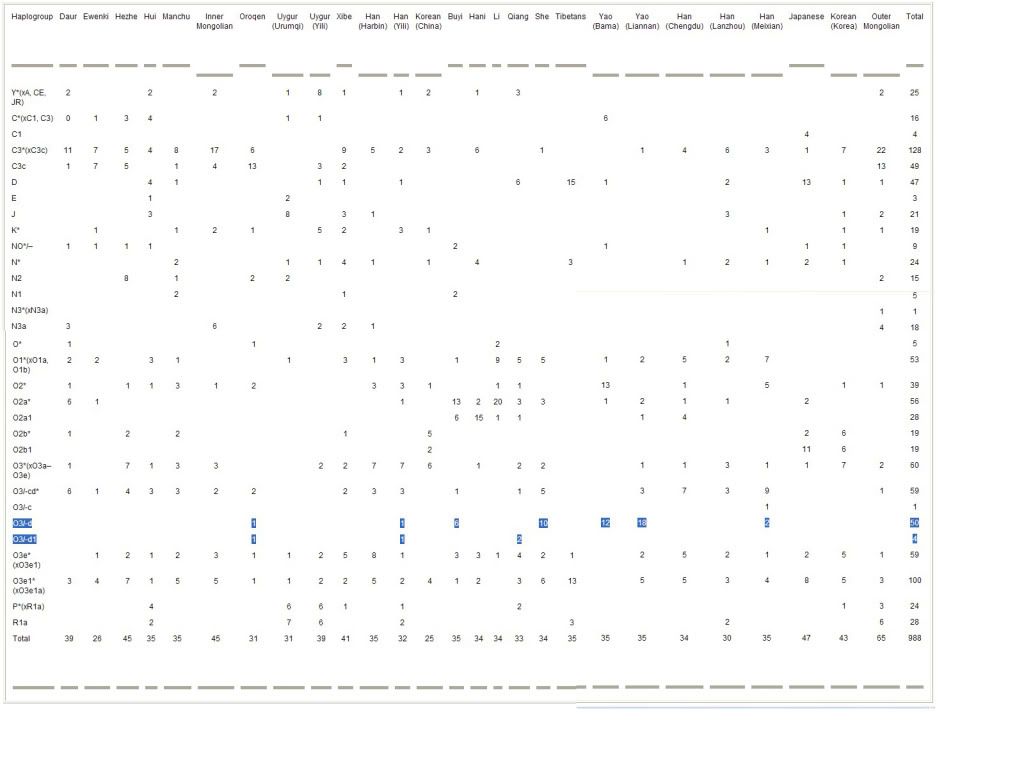Хүннүгийн булшнуудаас R1b олджээ
Хүннүгийн булшнуудаас R1b олджээ
Сүүлийн удаа NCA_D 8-р сар.31.18 1:02 am-д засварласан, нийт 1 удаа засварласан.
- NAIMAN-NOMAD
- Зураач
- Бичлэгүүд: 6329
- Нэгдсэн: 4-р сар.24.07 5:12 pm
- Байршил: Архан талд чинь:
Re: Хүннүгийн булшнуудаас Монголын гэгдэх C2/C3 хаплогрупп олдоогүй
Энэ юу вэ Нүх ээ.Чи энд бараг алга даа...





Модун хааны алтан ураг-R1a
Re: Хүннүгийн булшнуудаас Монголын гэгдэх C2/C3 хаплогрупп олдоогүй
R1b1b2 гэж харах нүд чамд алга
Энэ бол миний хаплогрупп
Энэ бол миний хаплогрупп
Сүүлийн удаа NCA_D 9-р сар.23.18 2:58 am-д засварласан, нийт 1 удаа засварласан.
Re: Хүннүгийн булшнуудаас Монголын гэгдэх C2/C3 хаплогрупп олдоогүй
...хөлдүү орк стаа
Сүүлийн удаа NCA_D 9-р сар.23.18 2:58 am-д засварласан, нийт 1 удаа засварласан.
Re: Хүннүгийн булшнуудаас Монголын гэгдэх C2/C3 хаплогрупп олдоогүй
Ehnii zurag ni mtDNA gejiishtNAIMAN-NOMAD написал:Энэ юу вэ Нүх ээ.Чи энд бараг алга даа...

Ehiin garliig ni haruulsan bna.
Maanagnomad iim maanag hun dee.
Re: Хүннүгийн булшнуудаас R1b олджээ
Вестник Российской Академии
ДНК-генеалогии
Том 4, № 9
2011 сентябрь
The "ProtoTürkic-lingual"
haplogroup R1b expanded from the South Siberia, where it formed some 16,000
years ago
p 1718
This R1a haplogroup appeared about 20,000 years ago (Klyosov, 2009b), in any
case there are no other data. I use here designations R1a and R1a1
interchangeably, since we do not have data whether they were distant in time or
have appeared almost at the same time, within a few generations. Apparently, it
was some 4,000 years before the appearance of the R1b1 haplogroup. It seems
that by the time when R1b arose, bearers of R1a1 have already left those places.
p 1731
The number of mutations between the European R1b1a2 base haplotype and the
Indian (and the Russian) haplotypes shown above is around 50. This is of no
surprise, since their common ancestors are separated by at least 30 thousand
years. There are almost no haplotypes of the R1b haplogroup in India and Iran. It
looks like there were no bearers of the R1b haplogroup, that is, ancestors of the
majority of nowadays Western Europeans, among the Aryans 3500 years ago. It
should also be noted that the upper castes of India in the present time consist of
up to 72% of bearers of haplogroup R1a1, particularly among Brahmins (Sharma
et al, 2009). At the same time not a single Brahmin among 367 tested ones
belonged to haplogroup R1b (ibid.).
1736
ДНК-генеалогии
Том 4, № 9
2011 сентябрь
The "ProtoTürkic-lingual"
haplogroup R1b expanded from the South Siberia, where it formed some 16,000
years ago
p 1718
This R1a haplogroup appeared about 20,000 years ago (Klyosov, 2009b), in any
case there are no other data. I use here designations R1a and R1a1
interchangeably, since we do not have data whether they were distant in time or
have appeared almost at the same time, within a few generations. Apparently, it
was some 4,000 years before the appearance of the R1b1 haplogroup. It seems
that by the time when R1b arose, bearers of R1a1 have already left those places.
p 1731
The number of mutations between the European R1b1a2 base haplotype and the
Indian (and the Russian) haplotypes shown above is around 50. This is of no
surprise, since their common ancestors are separated by at least 30 thousand
years. There are almost no haplotypes of the R1b haplogroup in India and Iran. It
looks like there were no bearers of the R1b haplogroup, that is, ancestors of the
majority of nowadays Western Europeans, among the Aryans 3500 years ago. It
should also be noted that the upper castes of India in the present time consist of
up to 72% of bearers of haplogroup R1a1, particularly among Brahmins (Sharma
et al, 2009). At the same time not a single Brahmin among 367 tested ones
belonged to haplogroup R1b (ibid.).
1736
